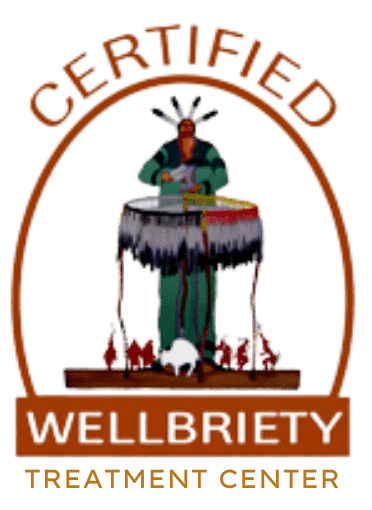How to Ask for Help with Addiction
After a long and stressful day at work, a glass of wine with dinner may be a way that you choose to unwind. It’s a simple way to take the edge off and honestly, there is really nothing wrong with that. However, what if that glass becomes two, and then three? What if your routine begins to change and become a little less healthy? Have the lines between recreation and abuse begun to blur into addiction? You may be swimming in questions. Are you trying to determine if you have really started down a path of addiction? If so, you may need help figuring out how this will affect your relationships, job or schooling. You may also fear that you are alone, or that you can’t go to others.
For many men and women, fear of judgment or disappointing their loved ones can be an enormous road block for recovery and treatment. Embarrassment or shame may hold you back from reaching out to the people who love you, in your time of need, which leads to feelings of being alone. Today, we are going to talk about identifying your situation, tips on how to start a conversation, how to empower your loved ones to be the best support for you, and of course, remind you that no matter what: you are not alone, and there is hope for your recovery.
The Line Between Recreation and Abuse
Let’s revisit the example above. It’s been one of those days. The workload is daunting, maybe your boss wasn’t the most encouraging and now you’re home and trying to just unwind. A simple glass of red wine may be just the trick. There is absolutely no harm in a glass of wine with dinner every now and then. However, once that occasional glass becomes a daily habit, or starts to go up to multiple glasses, it is time to evaluate if you are stuck in a loop. On average, it takes most people about 66 days to form a habit. This means they are in a continuous routine of the same behaviors – so much so that their brains have rewired themselves to believe that this habit is beneficial as well as necessary. Failure to keep the habit up may even cause negative effects, such as withdrawal. Have any of your recreational activities become a habit? Ask yourself some of these questions:
- Do you find yourself reaching for drugs or alcohol regularly, daily, or more than once a day?
- Is your recreational use beginning to affect your social or professional life?
- Are you experiencing financial setbacks due to spending excessively on drugs or alcohol?
- Are you developing new health concerns as a result of your substance use?
- Have you engaged in any dishonest behavior to either obtain more substances or hide your use?
- Are you using more and more to continue feeling high?
While there are many signs or questions to ask, if you feel like any of these may describe your current situation, it is possible that you have wandered down the path away from recreation and towards addiction. It is not an easy place to be, and it can be very scary to come back from. This is why it is so important to have someone to talk to and advocate for your health, recovery and treatment plan. Let’s take a look now at what you can do to communicate your needs to the people you love so that they can be the best support for you.
Communicating Your Needs
Many people who seek recovery from addiction find it extremely difficult to take the first steps toward healthier living by themselves. Fear can be paralyzing. Typically, it is much easier to go through the treatment process when you have the support, help or encouragement of loved ones. Asking for help and telling a parent, sibling or loved one your story can is never easy. However, effectively expressing your needs could be the first and most crucial step forward.
It’s a great idea to start the conversation by explaining how important it is. Set the tone by first asking for a private conversation. Commonly, if you have a close relationship with the person or people you are confiding in, they will have already sensed that something has changed. It is okay to ask for a judgment free conversation. It is also more than okay to open by outright saying you need help. Tell your story. Start from the beginning and help them walk through where you started up until where you are in the moment. Taking your loved ones through your journey will allow them to empathize with you. Here are some conversation starters that may help get the ball rolling:
“Do you think we could speak privately after dinner? There is something I really need to tell you.”
“I need your help with something and I am not sure how to ask for it, but it is very important to me.”
“There is something I need to take responsibility for, but I need you to be patient and understanding with me.”
The experts at Smart Recovery suggest that even using appropriate body language, such as a soft voice, eye contact and engaged posture can help facilitate this conversation.
Empowering Your Loved Ones to be an Advocate
Once you have started the conversation, it is natural for your loved ones to be a little shocked and unsure of what to do next. It’s very probable that just like you, this is their first time dealing with substance abuse. They will likely have many questions. It is key to be as honest as you can to establish trust. A relationship of trust will keep you comfortable as well as make sure they are doing what is in your best interest for your health and wellness. Just like it is vital for your chosen advocate to empower you and be a positive influence, empower them as well. Arm them with knowledge and set the expectations for them of what they may experience or expect during this journey together.
Setting Realistic Expectations
Once your loved one has begun to understand your personal situation and is ready to help, it is important for them to understand the expectations on both fronts. What do you need? What might they experience? How should they behave in these given situations? These are all the types of questions that may arise. As stated above, establishing trust and honesty is the first step. Here are just a few other pieces that we recommend discussing:
It Won’t Be Easy
There may be some back and forth. Addiction hurts and it is challenging to beat. It’s embarrassing and awkward, and you probably have many fears. This may cause you to be hesitant or outright resistant to treatment or recovery. Above all else, encourage your advocate to be kind, understanding and positive. No healing will come from negativity.
Encourage but Don’t Enable
This is a difficult line to walk, but it is a big one. While your chosen advocate should encourage you with positivity, and should help you on your journey, they are not professional addiction treatment coaches. There are things you will need to do yourself. There are conversations they can’t have with you and they will need to be okay with that. It may be natural for your family to want to do too much, and the help may lead to accidental enabling. This could cause you to push them away or lash out. Set boundaries early in the conversation. This will make things simpler in the long run.
Stay Informed and Committed
Once treatment begins, it is a lifetime of healing. Even when you are drug or alcohol free for ten years, it is important to maintain your healthy relationships to make sure that you keep on the path. Difficulties may arise at any time. Your advocates must stay committed and strong, because you will need that love and support. Staying informed will also be crucial. Encourage your family to research and learn about what you are experiencing! Understanding what addiction is and how it affects everyone involved will help them to build themselves a plan of support.
Encourage Guidance
Advocating for a loved one in recovery is mentally and emotionally taxing. Just as you are going to need help and support, it is not unrealistic for your loved ones to need it as well. Encourage your family or friends who are most closely involved to seek their own talk therapy or counseling – it could relieve some of their burden and stressors and help them to continue being a positive influence for you. Remember that there is absolutely nothing to be ashamed of for either side.
Need the Help of an Outside Advocate?
Sometimes you may feel like there is no one you can turn to, or perhaps you don’t have a strong support system. Perhaps you live in a different city or state than your family, or have little family to speak of. It is important to remember that you are not alone. Seeking outside help from a treatment professional, like the ones here at Sound Recovery Centers, may be the answer. Talking to a professional who understands your feelings can make you feel more hopeful. At Sound Recovery Centers, the majority of our staff members are in recovery themselves, and will be able to relate to you and your experience on a personal level.
Reach Out
If you or someone you know is struggling with an addiction or is in need of treatment, please reach out to us at 877-RECOVERY or 877-732-6837. Our team makes themselves available to take your call 24 hours a day, 7 days a week. Because We Care.













